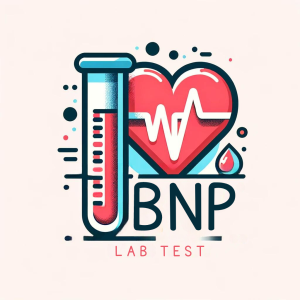Understanding the BNP Blood Test:
The B-Type Natriuretic Peptide, commonly referred to as the BNP blood test, is a critical diagnostic tool in cardiology. It measures the levels of BNP in your blood, which are often elevated in conditions affecting the heart. BNP is a hormone produced by your heart that increases in response to changes in pressure that occur when heart failure develops and worsens.
Why the BNP Blood Test is Important?
Monitoring BNP levels is vital in diagnosing, managing, and monitoring heart failure. An elevated BNP level indicates increased pressure and stress on the heart, which can be due to heart failure or other heart conditions. This test is especially important for individuals experiencing symptoms like shortness of breath, fatigue, and swollen legs, as it helps in differentiating heart failure from other potential causes of these symptoms.
| Biomarker | Normal Range | Elevated Levels Indicative of Heart Failure | Age-Specific Cutoffs for NT-proBNP |
|---|---|---|---|
| BNP | <100 pg/mL | >100 pg/mL | Not applicable |
| NT-proBNP | Under 75 years: <125 pg/mL Over 75 years: <450 pg/mL |
Over 900 pg/mL | Under 50 years: <300 pg/mL 50-74 years: <900 pg/mL Over 75 years: <450 pg/mL |
Frequently Asked Questions (FAQ)
Q: Who should get a BNP blood test?
A: Individuals exhibiting symptoms of heart failure or those with existing heart conditions are advised to undergo a B-Type Natriuretic Peptide blood test. It’s also useful for monitoring the effectiveness of heart failure treatment.
Q: How is the test performed?
A: The BNP blood test is a simple blood draw, requiring no special preparation. It’s a quick and low-risk procedure.
Q: What do the results mean?
A: Elevated BNP levels can indicate heart failure or other cardiac problems. However, BNP levels can be influenced by other factors like age, kidney function, and obesity, which should be considered while interpreting the results.
Q: Can this test diagnose heart failure?
A: While the BNP blood test is a crucial tool, it’s part of a comprehensive approach to diagnose heart failure. It should be used alongside other tests and clinical evaluations.
For more detailed information and understanding of the BNP blood test, you can visit our comprehensive guide to the B-Type Natriuretic Peptide test.
Reference: Harvard Health
Reviewed by Jeff Donohue M.D. from Body Logic and Brady Hurst DC, CCCN. Written by True Health Labs team of editorial health contributors.
Disclaimer: This information is for educational purposes only and not intended as medical advice. Consult your healthcare provider for personalized guidance.
Notes:
- This test is meant for monitoring BNP, not for acute heart attacks or heart failure.
- Due to the nature of this test, consults by TrueHealthLabs.com is not available. Please take your results to your treating physician.
Medical Review Board
Reviewed by Jeff Donohue M.D. from Body Logic and Brady Hurst DC, CCCN. Written by True Health Lab’s team of editorial health contributors.
Disclaimer: This information is for educational purposes only and not intended as medical advice. Consult your healthcare provider for personalized guidance.
Why Customers Trust True Health Labs – What People Are Saying
Also rated 4.6 out of 5 based on 3439 ShopperApproved reviews- See all TrueHealthLabs.com reviews.






